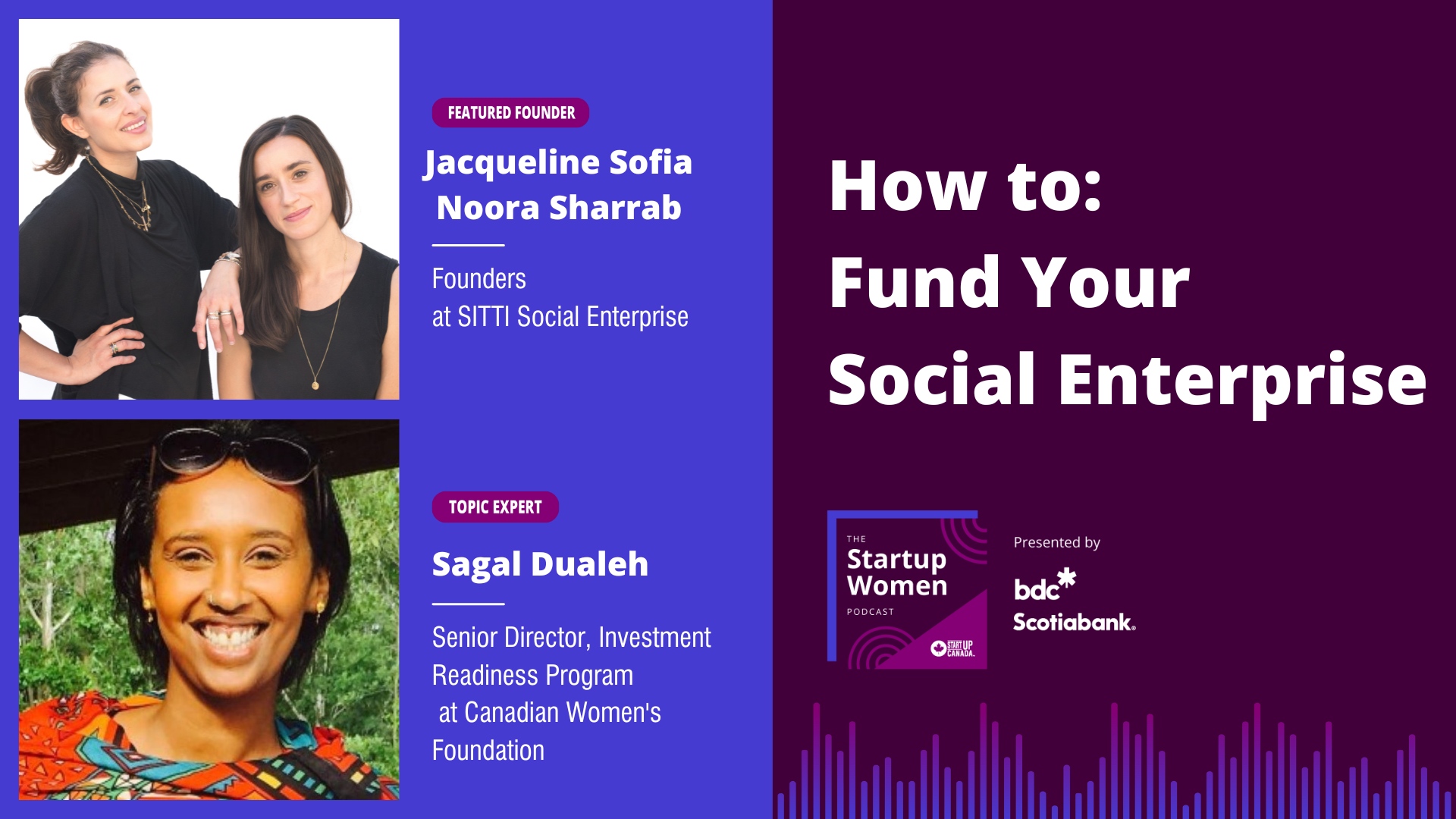“We can publish as many important numbers as we want, but people are going to connect to another face, another human.”
Impact isn’t always a number or a dollar amount. Often it is a story.
In November, our Startup Women Podcast host Kayla Isabelle sat down with Jacqueline Sofia and Noora Shaarab, co-founders of SITTI Social Enterprise and Sagal Dualeh, Senior Director of the Investment Readiness Program at the Canadian Women’s Foundation.
What does it mean to operate as a social enterprise? What does it mean to you both as co-founders of SITTI?
Jacqueline Sofia: It’s a difference in philosophy by which we live, as a company, as a corporation, as an entity. There is a distinction between your everyday company, small business and social enterprise that you are responsible for and you’re holding yourself responsible to a community for a greater cause other than yourself. Now to be honest, at the end of the day, all companies really should be paying attention to people, the planet, and profit if they’re not sustainable and that’s to their demise. Honestly. I think that social enterprise really should be the norm.
What is the Investment Readiness Program? How can Canadian social enterprises take advantage of this program and its funding?
Sagal Dualeh: The Investment Readiness Program is a funding opportunity, it is a grants opportunity. It is not funding that you have to pay back, it is not financing and it is not a loan. It is a national program that is funded by the Government of Canada, and it supports a whole range of organizations that are the ones that are solving Canada’s pressing challenging – everything from affordable housing to food insecurity to climate resiliency. What I am focused on is encouraging the readiness and growth of women and gender-diverse organizations.
How can social enterprises communicate their impact and ensure they are illustrating the good that they do through business while applying for funding like this?
Sagal Dualeh: We have a bird’s eye view of the different organizations that apply for funding, so communicating the story, and communicating impact is not a one size fits all approach. Each organization is so different, has a different way of sharing information, and has a different story to tell. It is extremely important to adapt the content, to adapt the information, and how you tell the story for the audience you are trying to reach. We do share something that we call a self-assessment tool, which includes a bunch of questions about impact measurements and communicating your story to help entrepreneurs.
Want to learn more about funding your social enterprise? Listen to the full episode and view a complete list of resources to help you fund your social enterprise.
